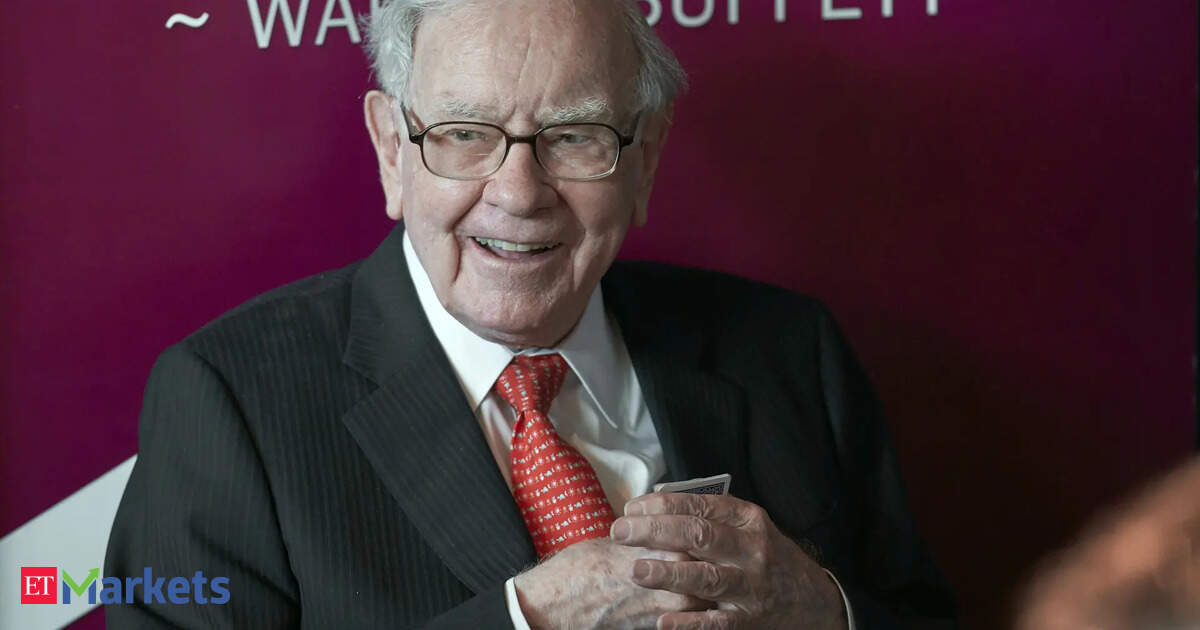While Berkshire Hathaway’s closely watched $292 billion stock portfolio is detailed each quarter in its public 13F filings, few investors pay attention to another vehicle within the conglomerate: New England Asset Management (NEAM), a specialty investment firm acquired in 1998 as part of Berkshire’s $22 billion all-stock takeover of General Re.
Though Buffett does not directly manage NEAM’s day-to-day trades, the firm is a wholly owned subsidiary of Berkshire Hathaway, making its holdings a lesser-known extension of Buffett’s empire. As of March 2025, NEAM managed Rs 5,280 crore ($616 million) in assets, with 122 individual securities disclosed in its latest 13F filing.
Among the usual mix of exchange-traded funds and blue-chip names, two holdings stand out: Alphabet and Microsoft, companies with multibillion-dollar ambitions in quantum computing.
Alphabet’s quantum leap with Willow
NEAM held 5,195 Class A shares of Alphabet at the end of March, extending Berkshire’s indirect exposure to one of Silicon Valley’s most aggressive research pipelines.
Alphabet, already dominant in internet search and digital advertising, has been making strides in quantum computing through its experimental Willow chip. Introduced in December 2024, Willow has demonstrated the ability to reduce errors as it scales and has reportedly performed calculations in minutes that would take traditional supercomputers “10 septillion” years to complete, according to the company.
While still far from commercialization, Willow represents Alphabet’s commitment to pushing the frontier of computing. With over Rs 95 billion in cash and marketable securities and Rs 36 billion in net operating cash flow generated in just the first quarter of 2025, Alphabet has both the capital and the cushion to invest aggressively in long-horizon technologies.
Microsoft’s Azure quantum ambitions
Buffett’s quantum computing bet doesn’t end with Google. NEAM also held 4,530 shares of Microsoft (MSFT) as of March, giving Berkshire indirect exposure to another heavyweight racing toward quantum advantage.
Microsoft is integrating its Majorana 1 quantum processing unit into Azure Quantum, a cloud-based platform that enables users to develop and run quantum algorithms. The company believes the scalability and speed of its quantum platform could significantly advance research and problem-solving in fields where classical computers fall short.
For now, quantum computing remains a nascent effort within Microsoft’s sprawling business. But with nearly Rs 80 billion in cash reserves and Rs 93 billion in cash generated over the nine months ending March 31, the company has ample resources to pursue long-term innovation without sacrificing near-term performance.
A contrarian bet from a conservative investor
Buffett has long been skeptical of speculative tech ventures, famously avoiding most of the dot-com boom and approaching artificial intelligence with caution. But NEAM’s exposure to Alphabet and Microsoft’s quantum projects reflects a subtler, more patient approach to disruptive innovation—backing companies with proven business models, fortress balance sheets, and the financial flexibility to take calculated bets on transformational technologies.
Quantum computing may still be years away from commercial viability. Yet by quietly backing two of its most credible developers, Buffett is positioning Berkshire Hathaway, and its shareholders for long-term upside in one of the most ambitious technology revolutions of our time.
Also read | Warren Buffett’s billion-dollar EV play backed BYD, so why not Tesla?
(Disclaimer: Recommendations, suggestions, views and opinions given by the experts are their own. These do not represent the views of the Economic Times)







